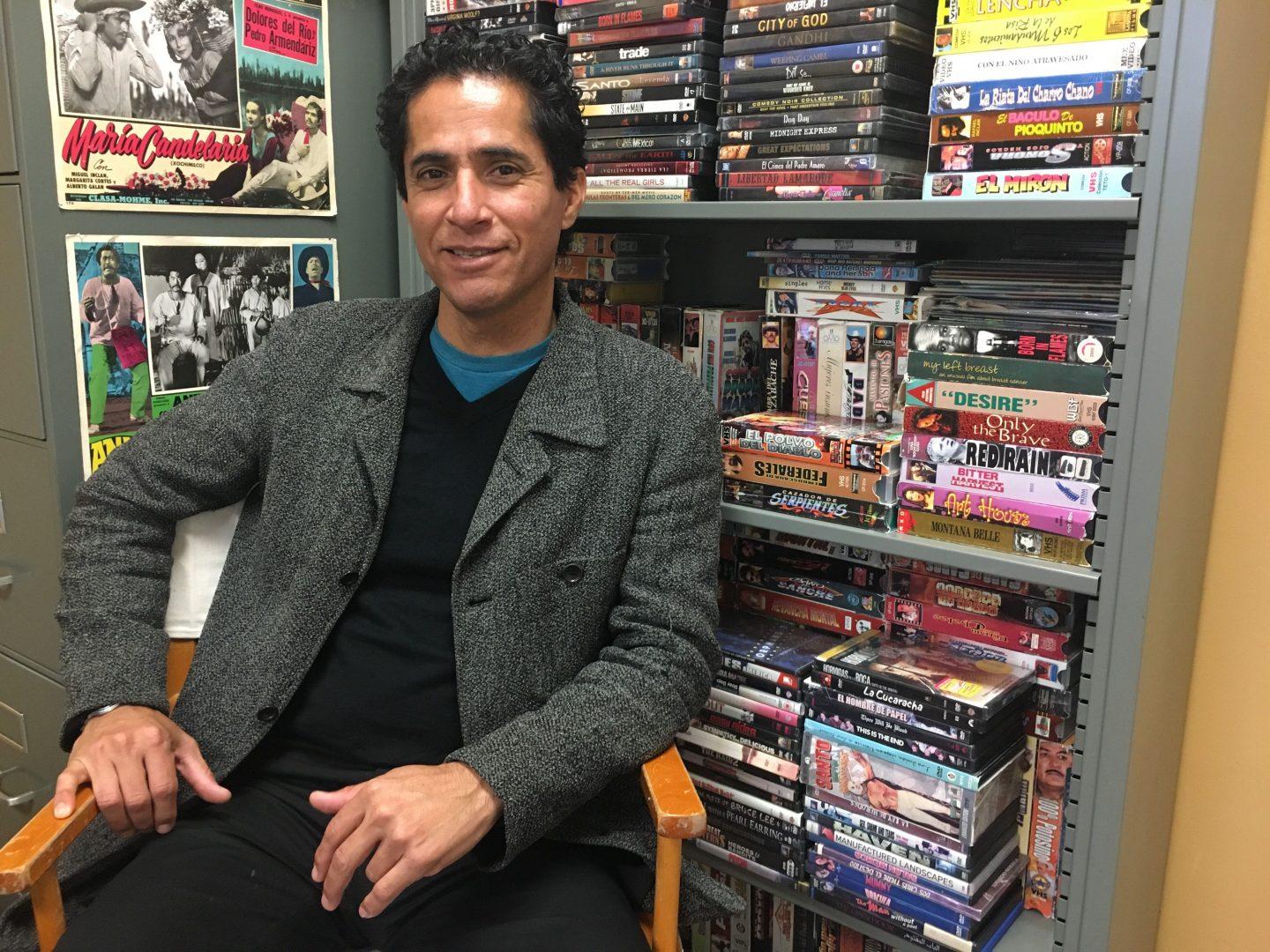The Fresno State Department of Media, Communications and Journalism hired its first-ever Latino tenure-track professor this school year: Dr. Adan Avalos.
The second-youngest of 11 siblings, Avalos wasn’t always college material, he said.
Avalos and his family worked in the fields picking seasonal fruit, from grapes and strawberries to figs. During the school year, Avalos also held miscellaneous jobs such as pumping gas and washing dishes to financially help his family.
College just wasn’t always in Avalos’ future plans.
However, that changed after his older sister, Maribel, made a choice that would change his life forever. She went to college, and her younger siblings followed her lead.
But for Avalos, his academic career wouldn’t be easy.
“‘Adan, you’re really not college material, maybe you should think about joining the army,’” Avalos recalled the words from his high school counselor.
“I didn’t have any of the courses I needed to even be admitted to college, but I wanted to go,” Avalos said.
His drive is what ultimately led Avalos to where he is today.
Avalos had always been placed in remedial math and English; not exactly the classes that intrigue colleges.
“We didn’t have advocates,” said Avalos, referring to his parents’ inability to help, because they were unfamiliar with higher education.
During a high school field trip to University of California, Berkeley, Avalos was struck by the number of Latinos on campus, and their encouragement for Avalos to attend a college.
Avalos graduated from Madera High School in 1991, and with help from the Educational Opportunity Program, he attended Fresno State.
Soon after, Avalos was naturally drawn to Chicano studies after taking courses by Dr. Juan Felipe Herrera.
“He [Herrera] really opened up a world for me; thinking creatively, thinking about the power of words,” Avalos said. “We always thought we had to learn about everyone else, but not ourselves…I never thought we had anything to say.”
Ultimately, Avalos double-majored in Chicano studies and art and received his teaching credentials in 1997. He went on to teach at Clovis West High School for two years.
“I wanted to be an artist. I felt like I had more to say,” Avalos said.
In 1999, he moved to Santa Monica, where he taught art at Santa Monica High School. He then taught at Santa Monica College.
In 2012, Avalos received his doctoral degree from the University of Southern California in film theory.
“The movies I ended up writing about are the ones that talk about our experiences as migrant workers dealing with health disparities, displacement, corruption, brutality and immigration problems,” Avalos said.
Avalos dedicated himself to re-analyze the “Naco” films — typically viewed as bad, low-budget movies, frowned upon by the upper Mexican class — and give them a new meaning.
“If you were a cultured person from the city, you watched Golden-Age Mexican films. Those are good quality, good production values,” Avalos said.
Although Avalos admires high-quality production cinema, it doesn’t always paint the picture of what his life entailed.
“We saw our lived experiences on the big screen in ways that Hollywood cinema or Golden-Age Mexican cinema didn’t do,” Avalos said. “We can’t just dismiss a body of work simply because they don’t meet our taste.”
In the past, Avalos had been a lecturer at Fresno State from 2012-2014. He taught courses ranging from Middle Eastern cinema to Chicano artistic expression.
Avalos then went on to teach at the University of New Mexico for four years, before moving back to Fresno.
This time, Avalos returned as a tenure-track professor, teaching in both the MCJ department and the art department.
“We are the fourth-largest Hispanic-serving institute in the CSU system by the nature of the entire population,” said Dr. Victor Olivares from the Employer Relations Team and liaison to the College of Social Sciences.
“Students feel better when there’s someone that looks like them, and this doesn’t mean that other non-Latinos aren’t good teachers,” Olivares said.
Olivares is working to improve the ratio between Hispanic students to Hispanic professors, of which there is a huge disparity, according to data from the Office of Institutional Effectiveness (OIE).
In the fall of 2017, there were 12,399 enrolled Hispanic students and only 76 Hispanic professors. That’s only one Hispanic professor for every 163 Hispanic students.
“We go after committed Latinos, not just the name,” Olivares said.
He said that Avalos is already a voice for students by expressing his need to see every student succeed.
In addition to the renovated library, Avalos was proud to see all the cultural programs readily available that were, perhaps, inaccessible in his time.
“For me, I’m glad I’m part of this and that I can contribute to these positive changes,” said Avalos.





